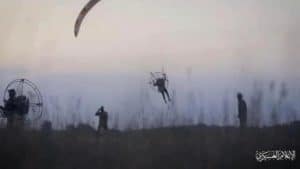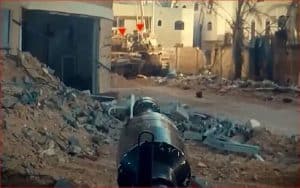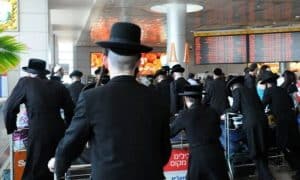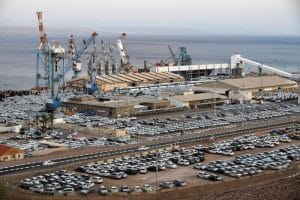PNN – The Zionist regime, which had introduced itself as one of the top military and intelligence powers by abusing the ignorance of the people of the world, with the Al-Aqsa storm operation, its strings were turned into cotton and these developments showed the world that this regime not only lacks power, but is economically, militarily, security, intelligence and cyber fragile and this fragility has diversified the options of enemies of Israel to mark its perpetual decline.
According to the report of Pakistan News Network, the Palestinian resistance led by Hamas launched a unique operation at dawn on October 7th by attacking Zionist settlements near Gaza and captured dozens of Zionists while capturing Israeli army bases.
After the start of the “Al-Aqsa Storm” operation by the Palestinian resistance, the Zionist authorities, thinking that they could destroy the resistance groups in a few days and thus take Gaza under their control, committed an unwanted suicide and during about 11 months of war, it suffered defeat and its vulnerability, weakness and incapacity became more and more obvious from different aspects.
Information failure
The first failure of the Zionist regime in this war was the surprise and ignorance of its intelligence agencies about the start of the Al-Aqsa storm operation, followed by the wrong information about the military strength of the resistance groups, which became more visible day by day and as the war dragged on.
This intelligence failure of the Zionist regime and the lack of information about the start of the operation, despite the extensive propaganda of the Zionists about their spying and intelligence devices, has provoked severe criticism from the Zionist authorities and media. “Amos Yadlin”, the former head of military intelligence of the Zionist regime (Aman), says that this operation was associated with Tel Aviv’s intelligence failure.

The head of the southern region of the internal security services of this regime (Shabak) was another Zionist security official who resigned sometime after the start of the war due to the defeat of the 7th of October.
In this regard, the Zionist newspaper “Yediot Aharnot” confirmed the shock of the occupation by the resistance operation and wrote: On the 7th of October, an emergency meeting was held at the 8200 intelligence base with the presence of the head of Shabak, the chief of the army staff, the commander of operations and the commander of the southern region. Everyone was shocked by the movements, but no details were available and spying on Palestinian communications was fruitless.
This media continued: This mistake happened despite the movements of Hamas on October 6, but all the evidence indicated that what is happening is a military maneuver.
Military weakness
The second weakness and vulnerability revealed by the Gaza war was the military weakness of the Zionist army. This fragility became apparent after, despite the warnings of the Palestinian resistance groups, the authorities of the occupying regime, who had achieved nothing but killing and destruction from the airstrikes, committed suicide by deciding to enter the Gaza Strip by land; Because the Palestinian resistance had warned them that entering Gaza would turn this strip into a Zionist cemetery.

Before taking the decision to enter the Gaza strip by land, the Zionists thought that they could assassinate the commanders of the resistance in a short period of time and finally finish the work of the resistance in this strip. But today, after about 11 months of war, the resistance groups continue to inflict heavy blows on the army of the occupying regime, and their rocket attacks continue on the occupied lands and even Tel Aviv.
In addition to the Gaza Strip, the war on the Lebanese front and the confrontation with Hezbollah have also revealed the weakness of the military power of the Zionist regime’s army; Because Hezbollah conducts several daily operations with missiles and drones against military positions and bases as well as Zionist settlements in the north of the occupied territories. On the other hand, Tel Aviv is unable to repel these attacks, and by blindly attacking civilians in southern Lebanon and making them martyrs, it is trying to reduce internal pressure on itself.
Security vulnerability
Al-Aqsa storm operation and subsequent developments in Palestine and the occupied territories also revealed another aspect of the weakness of the Zionist regime, which is the security fragility and the failure of Tel Aviv in providing security for the residents of the occupied territories.
This security fragility was clearly visible in the Zionist settlements adjacent to the Gaza Strip, the settlements in the north of occupied Palestine and adjacent to the Lebanese border, in the occupied West Bank and Quds, and even in the heart of Tel Aviv.

Also in Gaza, the Zionist army, which was not able to stop the resistance attacks on the settlements near this barrier, proceeded to evacuate the residents of these settlements so that at least with this action it could prevent them from being killed, and more than that, it was subjected to internal criticism and pressure.
The martyrdom operation on Sunday night in Tel Aviv was one of the most prominent cases that revealed the security fragility of the occupying regime, and today we are witnessing that it has terrified the leaders and masses of Zionists about the return of such operations after 22 years.
In an article referring to Tel Aviv’s anti-Zionist operation, Ahed news site wrote: Such operations have a great psychological effect on the enemy; Especially, it intensifies the feeling of worry and fear among Israelis and causes them to feel more frustrated and insecure.
Cyber Weakness
Since the beginning of the Al-Aqsa Storm operation, in addition to military attacks, the Zionist regime has also faced extensive cyber-attacks, and for this reason, Tel Aviv has made efforts to create an “electronic dome” in order to repel these attacks, which has achieved success in this field.
Following the inability of the Zionist regime in this field, its main infrastructures have witnessed continuous cyber-attacks during the past few months, and during this period, from military, security and urban sites to large companies hosted by this regime, they have been the target of cyber-attacks.
Therefore, it can be concluded that the Zionist regime has appeared weak against cyber-attacks and therefore faces new challenges, and cyber security is the most susceptible field for the penetration and vulnerability of this regime.
Economic failure
Commercial ships heading towards occupied Palestine enter the Red Sea through the Bab al-Mandab strait, and from there they are transferred to the port of Eilat or the Suez Canal in Egypt, and then to the port of Ashdod or Haifa. But today, considering the war in Gaza and the new maritime equation that Yemen has drawn against the Zionist regime, until the blockade of Gaza is lifted and food, medicine and other basic necessities do not reach this region, no ship from the origin to the destination of the occupied territories will be allowed. It does not have the entrance and exit of Bab al-Mandab.

The Washington Post also writes in a report on the amount of damage to the Israeli economy caused by the war: Israel’s economy has been hit hard, and its impact on the high-tech sector is alarming, and the cost of the Gaza war to Israel is estimated at $18 billion, or about $220 million.
This economic, military, security, cyber and intelligence fragility in the shadow of the response of the Islamic Republic of Iran, Hezbollah and the axis of resistance to the recent terror operations in Tehran and Beirut has seriously worried the Zionists.

